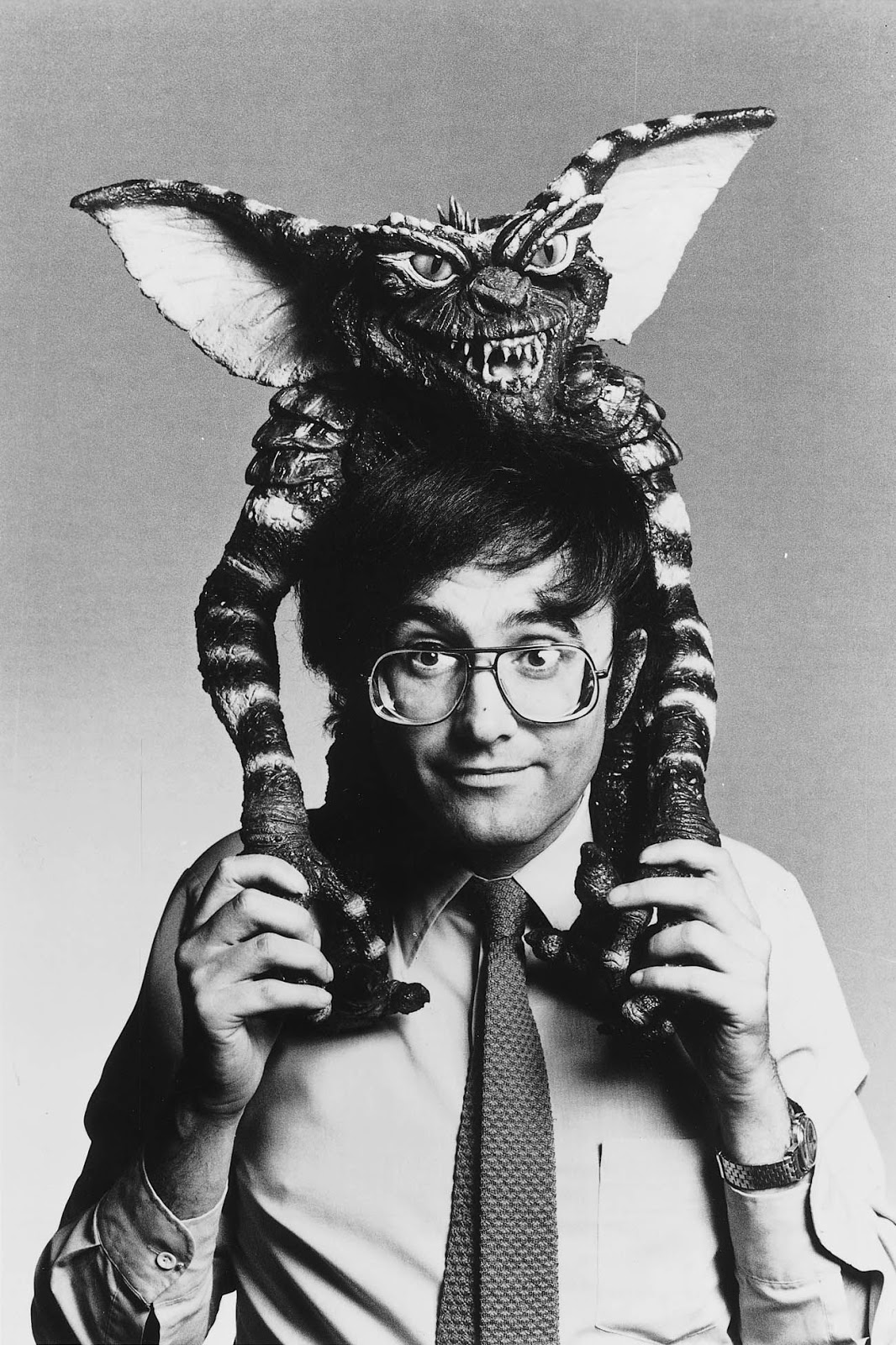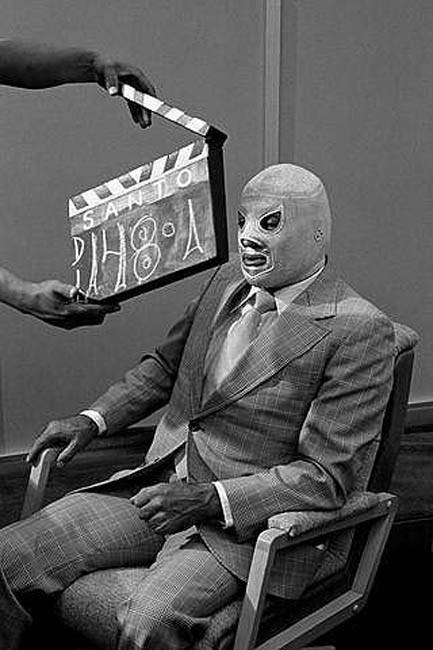Movie Review: HALLOWEEN (2018): You can't keep a good Boogeyman down.
Sometimes just one critic can change
the course of movie history.
Or at the very least, the life of a
talented, yet unknown director.
In 1978, a young John Carpenter was
hired to make a horror film about babysitters being stalked by a
serial killer by producer Irwin Yablans and financier Moustapha
Akkad, who had been impressed by his ASSAULT ON PRECINCT 13. The
gutsy 30 years old demanded complete artistic control, his name above
the title (like his idols Howard Hawks, John Ford and Hitchcock) and
proceeded to write, direct and score the film, which went from THE
BABYSITTER MURDERS to the less on-the-nose HALLOWEEN (On a suggestion
by Yablans).
The film was released in October 1978
and was panned unanimously by critics, and looked like it may vanish
quickly from theaters. That is until a particularly glowing review
by Tom Allen in THE VILLAGE VOICE shifted the opinion of critics who
started seeing the film for more than a mere killer on the loose
horror film. How indeed does one read the following statement and
not think to himself: ''Wait! What did I miss?''
''It’s useless to take a lofty
view on an instant schlock horror classic, but there are reasons why
John Carpenter’s Halloween, alone in the last decade, stands with
George A. Romero’s Night of the Living Dead and, before that, with
Psycho, in which Hitchcock subverted the subgenre to different ends.
The resemblance of Halloween to the Romero film—an assault on
credibility couched in documentary prose—is the utter implacability
of the antagonist, a faceless psychopath of terrifying strength and
preternatural ubiquity who lays siege to two households of teenagers.
Otherwise, Halloween, a study in warm colors, dark shadows, and
ceaselessly tracking dollies, owes much more to the expressive
possibilities raised by Vincente Minnelli in the Halloween sequence
of Meet Me in St. Louis than to any films in the realistic school. ''
From the impressive opening panaglide
shot through the Myers family house to the hauntingly still shot of
the same abandoned house at the very end, both accompanied by
murderer Michael Myers's terrifying breathing , Carpenter's taut,
no-frills thriller adroitly installs a sense of dread, thanks in
great part to a powerfully minimalist score that does for suburbs
what John Williams' 'Dah-dum, dah-dum'' did for the beach.
 |
| John Carpenter on the set of the 1978 HALLOWEEN, flanked by the Panaglide operator. |
Jaime Lee Curtis shines in her first
feature film role (She had acted in a few TV shows up to that point)
and makes you forget quickly the ''stunt casting'' of her being
Janet Leigh's daughter. More than a modernized ''Scream Queen'', she
brings a resilience to her vulnerability that makes her more than a
nameless victim. (As a matter of fact, if it wasn't for Myers'
supernatural nature, she might have been able to subdue him without
Dr. Loomis' help. ) Veteran actor Donald Pleasance as Loomis brings
himself a sense of legitimacy to the film, serving pretty much as
the harbinger of doom and potential saviour.
 |
| Donald Pleasance and Jaime Lee Curtis on the set of HALLOWEEN II. |
His character would be the most
enduring of the series after Myers, returning for 5 sequels ,each more
insipid than the last, HALLOWEEN : THE CURSE OF MICHAEL MYERS (1995,
Joe Chappelle) being also one of his very last performance before he
died the same year. There is something almost heartrendingly sad to
see such a revered thespian being caught in the indigestible pablum
the series had turned into.
The 1978 film's resounding success at
the box office ($70 million worldwide on a $325,000 budget) did
imply that sequels would soon follow, although Carpenter wasn't all
that interested to get involved in them. He did produce the lackluster HALLOWEEN II, then infamously decided to do away with
Michael Myers, and was hoping to start a series of unrelated films
all centered on the Halloween holiday with HALLOWEEN III: THE SEASON OF THE WITCH.
But the public gave the film a tepid welcome, and clamored for the
return of the white masked killer.
And return he did, and through
an unending series of progressively complex and incomprehensible feature films, went on to
die for good in the sixth chapter in 1995. Not per se onscreen, but definitely at
the box office.
 |
| Laurie Strode facing her own personal demon one more time in HALLOWEEN H2O (1998) |
Then came a first attempt to reboot the
series. In 1998, to celebrate the 20th anniversary of the film, Jaime
Lee Curtis came back as Strode, in HALLOWEEN H2O: 20 YEARS LATER, a film that ignored all sequels
after chapter II, with Strode now the Dean of a private school, living under an
assumed name. Since Myers had been vanquished at the end of episode
II, her PTSD is nowhere as potent as the one Jaime Lee Curtis
displays in the 2018 reboot. Even though it was a vast improvement on
the preceding chapters, the Steve Miner film accumulated self
referential nods, a plethora of cheap scares, and the type of brutal
killings that was his trademark in his FRIDAY THE 13th
movies. Save from a nice score by John Ottman and Marco Beltrami
reprising creatively some of John Carpenter's music from the
original, and the fact it was arguably the best sequel up to that point (Talk about a low bar) the film didn't do much to relaunch the series, and the
following installment pretty much killed the series again, especially
after the foolish, reckless killing of Laurie Strode in the first part of the
film.
Rob Zombie attempted his own awkward
reboots in 2007 and 2009. Loud, unpleasant and making the mistake of
giving Michael Myers a criminally mundane origin, they are part of a
series of forgettable horror remakes made in the early 2000s by Dimension and Platinum Dunes, which
did nothing to make us forget the superior original films.
And here we are now, 40 years after
Michael Myers fell off that balcony, and for the first time, a remake/reboot/sequel
of one of Carpenter's films gets his full endorsement.
It's clear from the opening credits
that director David Gordon Green desires not only to pay tribute to
the John Carpenter original (which also serves as the ONLY accepted
background for this sequel.) but also wants to reanimate and bring
back some kind of luster to this series which had been literally
rotting away in an unholy mess of reboots, remakes and misguided
sequels. No more are we expected to believe that Laurie Strode (A
formidable Jaime Lee Curtis returning once more to her iconic role)
is Michael Myers' sister like it was established way back in HALLOWEEN II, or worse yet, that Myers is some part of some cultist
plan to bring back Samhain.
 |
| Stay away from windows. Laurie Strode (Jaime Lee Curtis) once again confronts her past in HALLOWEEN. |
This time, Laurie strode, in pure Sarah
Connors fashion, has prepared all her life for Michael Myers' return.
Her house off the grid is booby-trapped to the hilt, and she spent
years training her daughter (Judy Greer) to be ready for such a
confrontation, until she was taken by the State at the age of 12.
She, however, has not embraced her mother's paranoia, and has tried
her best to keep her own daughter (Andi Matichak) away from this
insanity. Of course, Laurie's fears were justified as Myers manages
to escape during a transfer to another facility. (The scene where
Curtis witnesses the bus carrying Myers leaving the mental
institution is especially poignant. Her acting being assisted by
everyone on the crew that night wearing a "We are Laurie Strode" name tag). Of course, we have to accept that Myers
was eventually captured after his disappearance at the end of the
1978 film.
Although director David Gordon Green is
not known as a horror director (having being at the helm of stoner
comedies like YOUR HIGHNESS and PINEAPPLE EXPRESS, and dabbling in a
pretty decent inspirational drama with STRONGER), and claims to be
respecting the original film, he does stray from Carpenter's
bloodless approach in the 1978 movie by offering a healthy dose of
onscreen violence and gore. Something to attract the kids and the
Blumhouse fans, no doubt.
 |
| Michael Myers performer Nick Castle recreating a behind the scenes candid shot from the original film on the set of HALLOWEEN (2018) |
Nevertheless, it's refreshing to see
Michael Myers back as a simple, mindless embodiment of evil. Not a
vengeful sibling. Not a troubled child from a white trash upbringing.
Just a relentless killing "shape". (with director Nick
Castle once again donning the discolored Captain Kirk mask.) And
it's also a plus to see John Carpenter himself back at the music,
adapting his unforgettable 1978 score with his son Cody Carpenter,
and his godson Daniel Davies, both of whom are part of his band on
tour, and have contributed to his albums LOST THEMES I and II. I'd be
lying if I said that hearing his music over the trailers didn't
create in me a strong desire to go see the film just for that very
reason. Carpenter's involvement also extends to being executive
producer and creative consultant.
The script
by Danny McBride and Green is streamlined enough, yet one can
question the motivations of journalist Aaron Korey (Jefferson Hall),
whose obsession with Myers presses him to do something stupidly
reckless, under the watchful eyes of Myers' psychiatrist Dr. Sartain
(a rather cartoonish Haluk
Bilginer). The good doctor is also the focus of the only truly
groan-inducing scene of the film, which sets up a concept similar to
one unconvincingly explored in the previous films. One can only hope
it will be abandoned in the now announced sequel.
 |
| Jefferson Hall's misguided gesture in HALLOWEEN. Really? Tease a serial killer with his mask? |
The one thing the script gets right is
the interactions between the three women stalked by Myers. There is
no denying that there is a certain amount of satisfaction in seeing
three generations of women fight back against an assailant who
resurfaces after 40 years. The timing couldn't be more appropriate,
considering some of the political headlines that have been pretty
influential on the upcoming midterm elections. In Green's HALLOWEEN,
the Strode women are done being victims, and will turn from prey to
predator. The victims who fight back against the monster is nothing
new; Nany confronted Freddy at the end of NIGHTMARE ON ELM STREET
(1984, Wes Craven), Ripley kicked the Alien mother's ass in ALIENS
(1986, James Cameron), and so on. Yet at this moment in time, Laurie
Strode standing up to her attacker feels more pertinent than ever.
Who would have thought that 40 years
after his initial carnage, Michael Myers would find some kind of
relevancy in the #metoo era.





Comments
Post a Comment